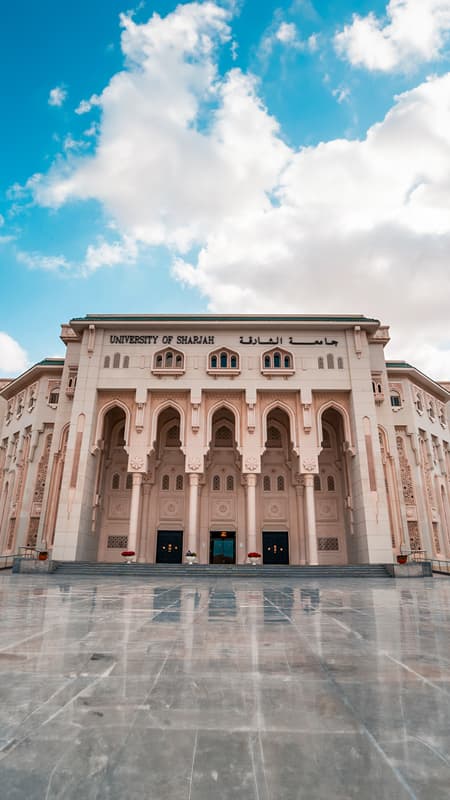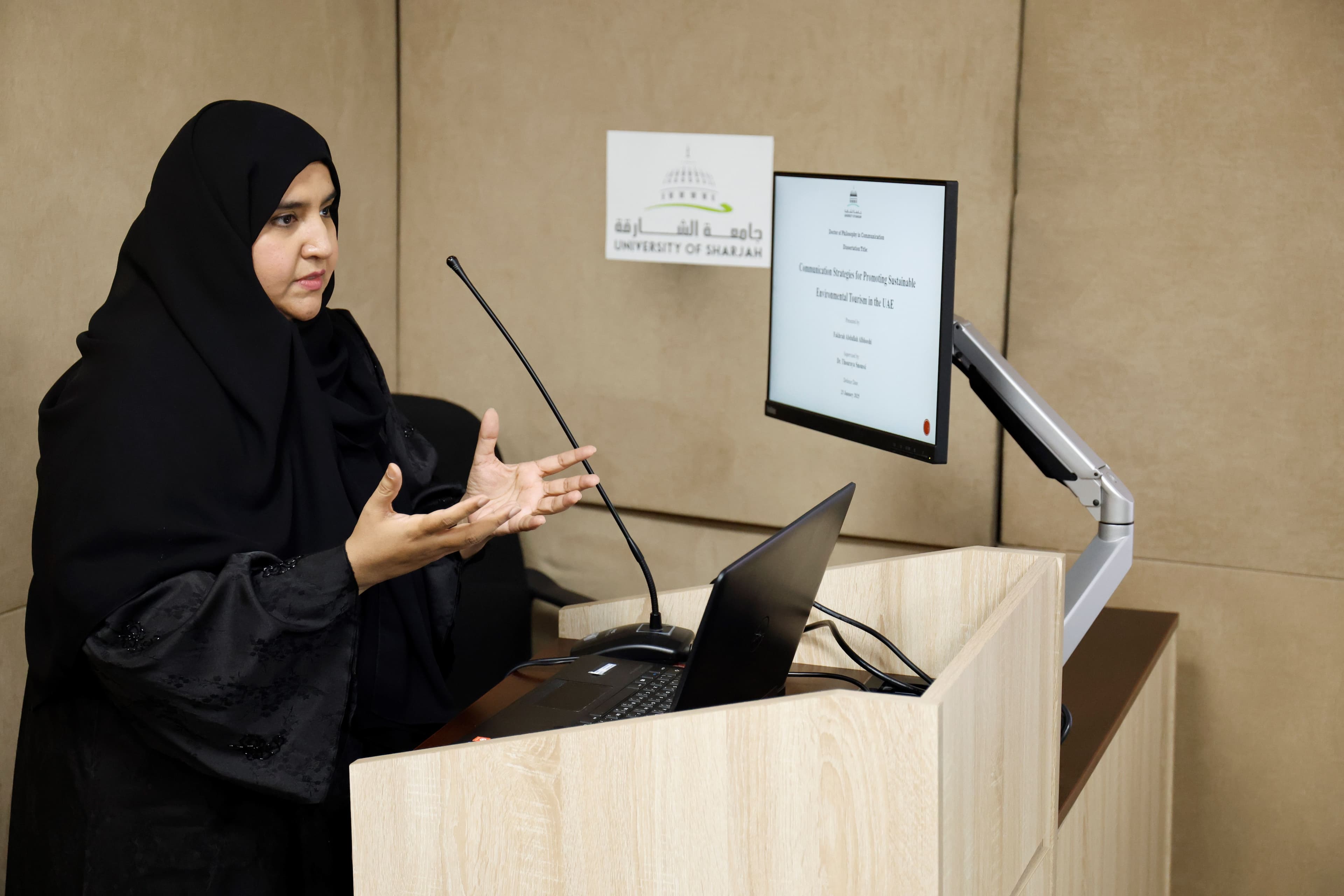Global
A PhD Dissertation Explores Communication Strategies for Promoting Sustainable Ecotourism in the UAE
The College of Communication at the University of Sharjah recently hosted the defense of a doctoral dissertation by researcher Fakhra Abdullah Issa Al Balushi, titled Communication Strategies for Promoting Sustainable Ecotourism in the United Arab Emirates. Supervised by Dr. Thouraya Snoussi, Chair of the Department of Mass Communication, the study aimed to assess the efficacy of various communication strategies in promoting ecotourism by examining their influence on tourists' perceptions, engagement, and environmentally conscious behaviors. Additionally, the research sought to provide insights that support the growth of sustainable tourism by identifying the most effective communication channels, messaging strategies, and approaches for raising awareness and fostering responsible tourism practices. The thesis committee comprised Dr. Fawzia Al Ali, Dr. Badriya Al Janibi, and Dr. Ahmed Farouk.
The findings of Dr. Al Balushi’s research underscore the need for a more dynamic and interactive approach to promoting tourism. The researcher recommends that government tourism websites transition away from traditional, news-style formats and adopt more engaging and immersive platforms. Integrating storytelling techniques, multimedia content, and experiential marketing could attract a broader audience, inspire travel, and ensure the long-term sustainability of tourist destinations. Furthermore, the establishment of a dedicated Ministry of Tourism would enhance these efforts by developing cohesive tourism strategies in coordination with other ministries and local authorities.
The thesis also emphasizes the importance of a balanced approach to sustainable ecotourism promotion—one that harmonizes cultural preservation, environmental protection, and local economic growth. Achieving this balance requires active community involvement, positioning local residents as key players in educating tourists about cultural heritage and reinforcing the importance of protecting natural and historical sites.
Moreover, the study advocates for empowering local populations to serve as cultural and environmental ambassadors. By fostering a deeper and more authentic tourism experience, this approach not only boosts the community’s sense of pride but also yields economic benefits. This comprehensive strategy goes beyond merely conserving environmental and cultural resources; it lays the foundation for a sustainable tourism model that ensures long-term prosperity and resilience for local communities.



